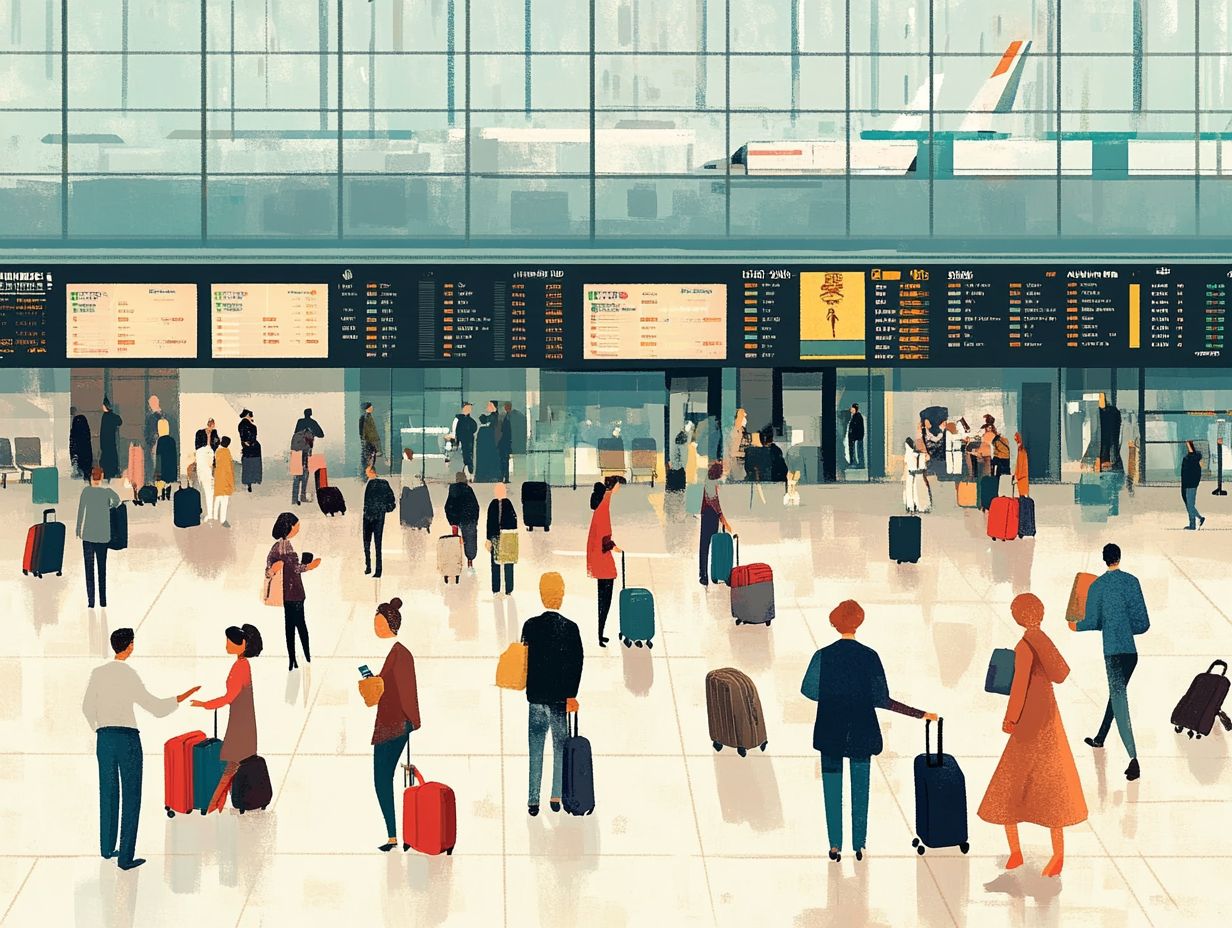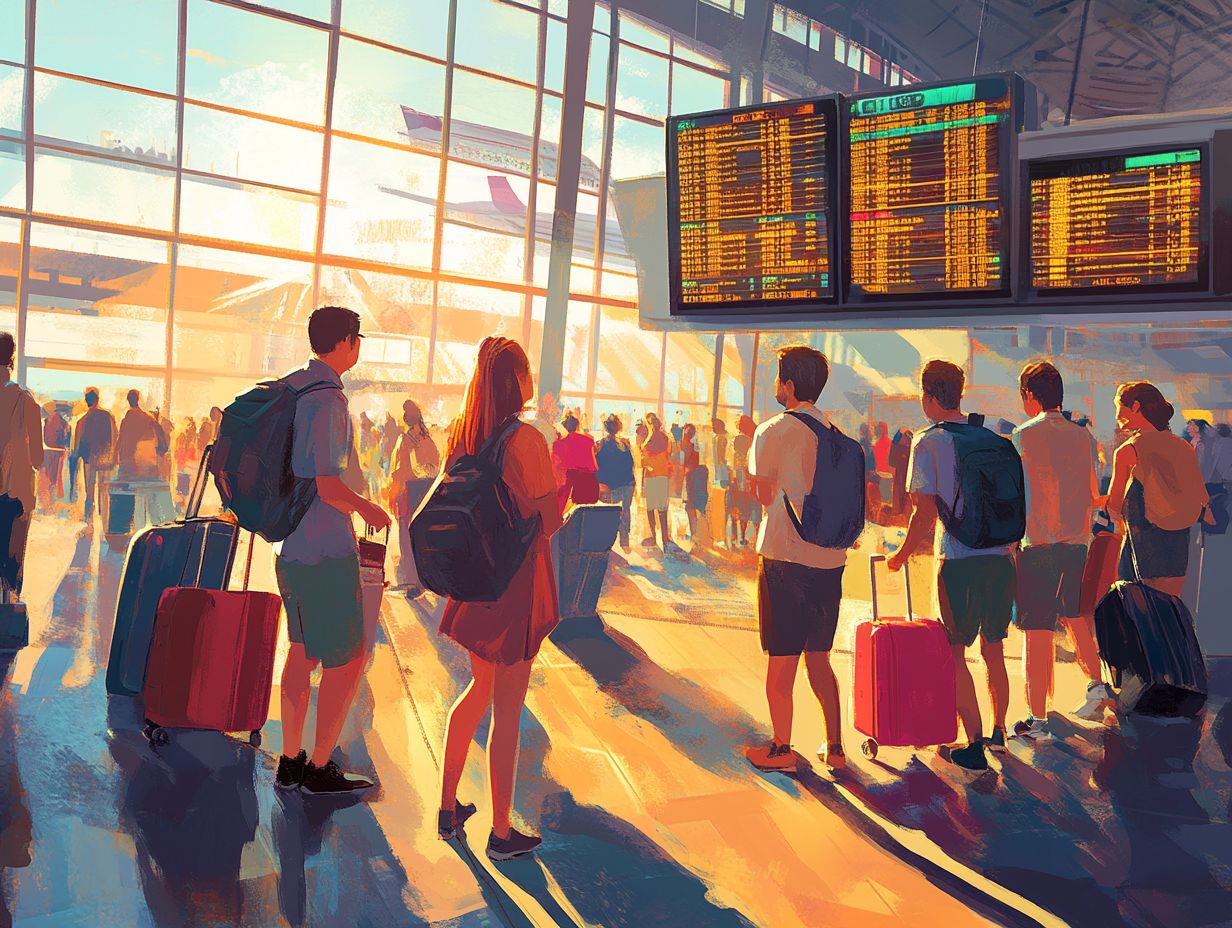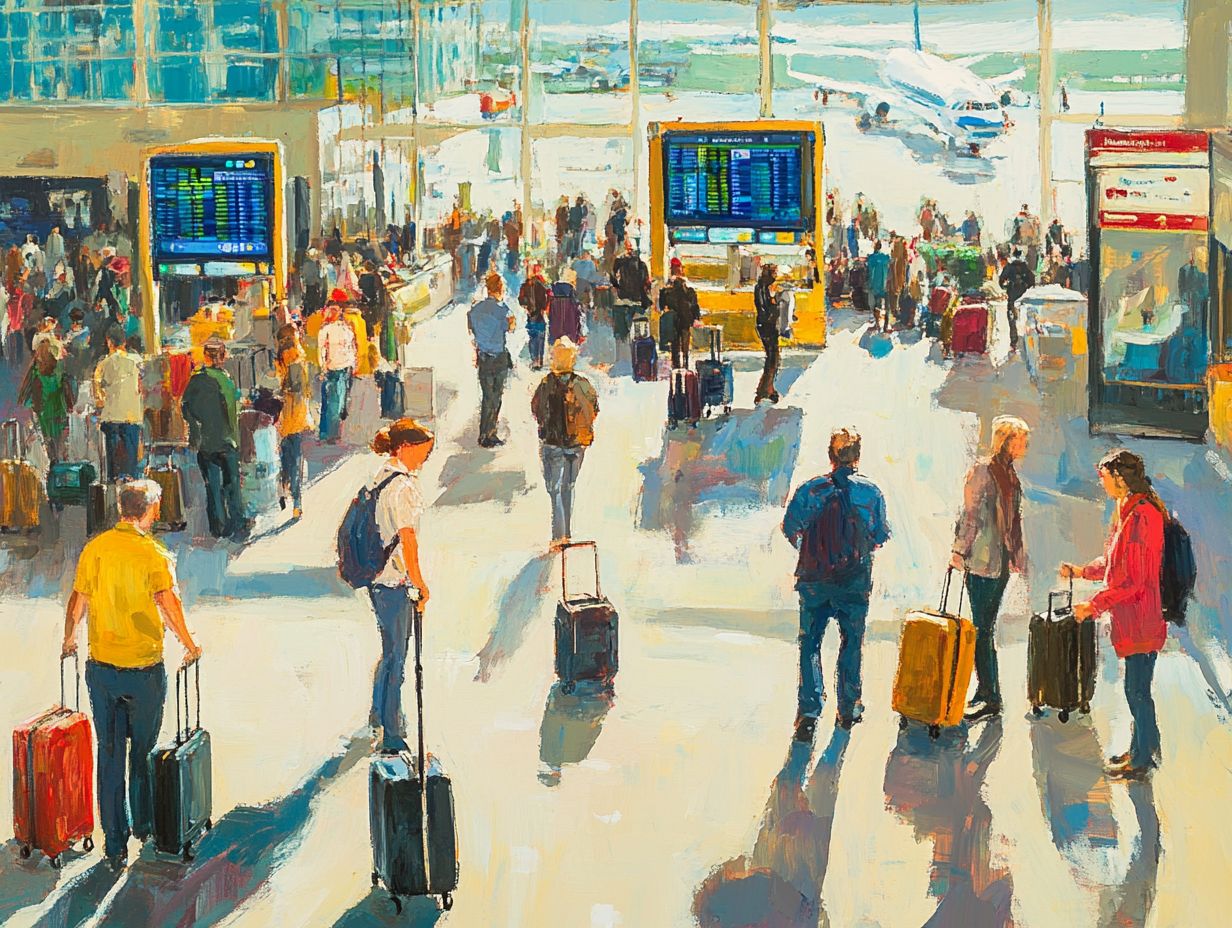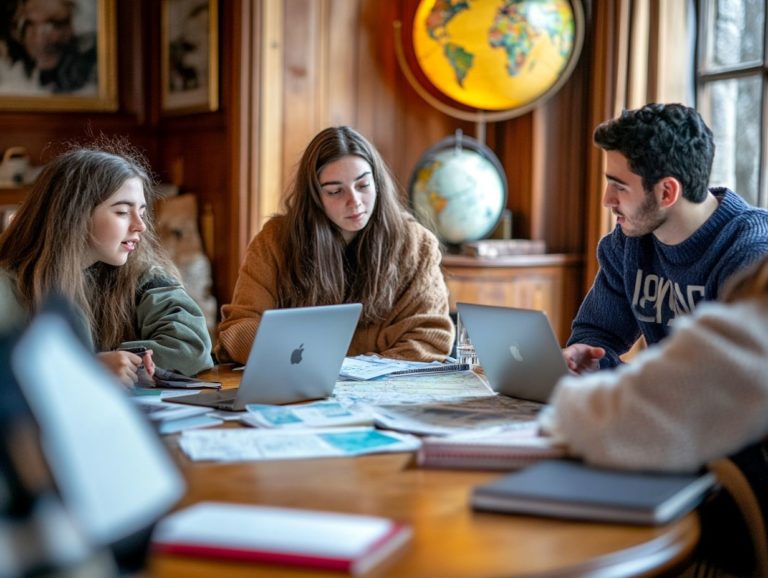What to Expect on Arrival?
Get ready for an adventure in a new country! Arriving in a new country is an exhilarating experience, yet it can also feel a bit daunting. This comprehensive guide provides you with everything you need to navigate this transition seamlessly from essential documents and packing tips to a clear understanding of customs and immigration processes.
Discover the various transportation options available to help you reach your new home. Explore the different types of accommodations that suit your needs. Uncover must-visit local attractions that will enrich your experience. You’ll also find valuable tips for adapting to the new culture, ensuring that you feel at home in no time.
Contents
Key Takeaways:

- Familiarize yourself with necessary documents and items to bring before arriving at your destination.
- Understand the customs and immigration processes to ensure a smooth arrival.
- Plan your transportation and accommodation options in advance to make the most of your new environment.
Preparing for Arrival
Preparing for your arrival in the United States is an essential step for international students and scholars. It involves mastering the immigration requirements, gathering the necessary travel documents, and ensuring a seamless transition upon entry. This preparation truly sets the tone for a successful experience, whether you re arriving on an F-1 visa, a J-1 visa, or participating in a temporary exchange program.
By meticulously organizing your valid passport and visa application, you ll be able to navigate the arrival process with confidence and poise. Make sure your passport is valid for at least six months beyond your intended stay no one wants to be caught off guard at the border!
Important Documents and Items to Bring
When you’re gearing up for your arrival in the United States, having all the necessary travel documents at your fingertips is essential for a seamless immigration experience. Your visa application should be completed accurately to reflect the purpose of your visit.
Don’t overlook other crucial documents like the I-20 or DS-2019 forms, especially if you’re a student or an exchange visitor. Customs declarations are also a key part of your entry process, so it’s wise to prepare those thoroughly.
A slip in document preparation can lead to frustrating delays or even denial of entry. Double-check your documents now to avoid last-minute stress!
Arrival Procedures
Upon your arrival in the United States, you will navigate a series of essential procedures designed to ensure compliance with immigration laws and customs regulations, primarily overseen by Customs and Border Protection (CBP) officers. This process involves presenting your travel documents, undergoing security checks, and obtaining your I-94 record, which serves as your official entry document.
Familiarizing yourself with these protocols will streamline your experience and help you navigate any potential secondary inspections with ease.
Customs and Immigration Processes
Navigating the customs and immigration processes can feel overwhelming for your first journey to the United States, but understanding the role of Customs and Border Protection (CBP) can truly clarify the experience.
Upon your arrival, you ll meet immigration agents who verify your immigration status. This process typically involves presenting essential travel documents, answering standard questions about your visit s purpose, and detailing how long you plan to stay.
It s crucial to keep your documents accurate and up-to-date, as any discrepancies could result in delays or, worse, denial of entry. Agents might inquire about your previous travels, financial stability, or any connections you have within the U.S.
By communicating clearly and being well-prepared, you can ensure this interaction goes smoothly, paving the way for a successful entry. However, be aware that unexpected complications could arise, potentially impacting your future travel plans.
Transportation Options

After navigating customs and immigration, your next step is finding the right transportation to your destination in the vast United States.
You have plenty of options, from airport shuttles to local taxis and ride-sharing apps like Uber and Lyft. These services will help you reach your new home with ease.
Take a moment to familiarize yourself with the local currency and payment methods. This knowledge will make your transition smoother as you start this exciting new chapter.
Getting to Your Destination
Traveling from the airport to your destination is crucial. Knowing your travel intent will help you choose the best transportation option.
Are you heading to a hotel, a meeting, or a local attraction? Having a clear end goal makes route planning easier and more efficient. Some paths are quicker, while others offer scenic views.
Feel free to ask ISI staff for personalized transportation advice. They can provide valuable insights based on current traffic or local events.
Getting to know local transportation, like buses and trains, can improve your travel experience. Using ride-booking apps can help you confidently navigate unfamiliar areas.
Accommodation Choices
Finding the right place to stay is essential for international students and scholars in the U.S. It can greatly impact your comfort and overall experience.
You ll encounter various housing options, from university dormitories to off-campus apartments and homestays. Understanding local currency and rental practices will help you navigate this process confidently.
Don’t hesitate to contact ISI staff if you have questions or need assistance.
Types of Accommodations Available
When choosing where to live in the U.S., you ll find options that cater to your needs, including university dormitories and private apartments.
Each option has its advantages based on lifestyle and budget. University dormitories foster a friendly community atmosphere, ideal for making friends. They often come with essentials like furniture and shared kitchens, all at a budget-friendly price.
On the other hand, private apartments offer more independence and modern amenities. However, they typically cost more.
Assess your financial situation to determine which living arrangement best fits your social needs and daily routine.
Exploring Your New Environment
Exploring your new surroundings in the U.S. is an exciting opportunity. It opens the door to vibrant cultural experiences and community engagement.
Whether visiting local attractions or participating in student activities, there are countless opportunities to enrich your educational journey. Embracing these experiences can enhance your time abroad in unexpected ways.
Local Attractions and Activities

Local attractions and activities serve as your gateway to fully immerse yourself in American culture and community life.
Whether it s bustling food markets or vibrant outdoor art festivals, you ll find no shortage of experiences designed to foster meaningful connections.
Explore museums that offer a glimpse into local history or take part in seasonal events like summer concerts in the park, which are ideal for meeting new people.
Joining clubs or engaging in volunteer activities can further enrich your experience, enabling you to connect with both locals and fellow international students.
Attending community workshops not only hones your skills but also deepens your understanding of the area s cultural dynamics. This transforms every outing into an opportunity for personal growth and lasting friendships.
Adjusting to the New Culture
Adjusting to a new culture is an important part of your journey as an international student. It requires both time and an open heart to truly embrace the social norms and communication styles unique to the United States.
Navigating this cultural landscape can enrich your educational experience and foster personal growth throughout your stay.
Engage with local communities and connect with fellow international students to cultivate meaningful relationships that ease your transition and make it more rewarding.
Tips for Cultural Adaptation
Successful cultural adaptation hinges on understanding social norms and effective communication styles, essential for building friendships and integrating into the community.
As an international student, immersing yourself in the local culture can be thrilling yet overwhelming. Learning about regional customs like greeting habits or dining etiquette can enhance your interactions and minimize misunderstandings.
Participating in local events, whether through community festivals or university clubs, opens up great opportunities to meet new people and forge lasting friendships.
Many campuses boast multicultural centers that serve as excellent resources, offering guidance as you navigate this new environment.
By actively seeking out these resources and participating in social activities, you can cultivate a sense of belonging and ease your transition into a different cultural landscape.
Frequently Asked Questions
What to Expect on Arrival?
Upon arrival, you can expect to go through customs and immigration. Your bags may be inspected, and you will then proceed to the designated arrivals area of the airport.
Do I need any specific documents for arrival?

It is important to have your passport and any necessary travel visas ready for inspection. Also, make sure to have any required health or vaccination documents if traveling to a specific country.
Will I need to fill out any forms upon arrival?
Some countries may require you to fill out a customs declaration form upon arrival. Ensure this form is filled accurately and completely.
What about transportation from the airport?
Most airports offer various transportation options, such as taxis, buses, or shuttles. You can also pre-arrange a car service or rental car if desired.
What if my flight is delayed?
If your flight is delayed, you may need to make alternate arrangements for transportation from the airport. Contact your airline for assistance and updates on your flight status.
Are there any restrictions on items I can bring into the country?
Most countries have restrictions on certain items, such as food, plants, or medications. It is essential to check the customs regulations of the country you are visiting before packing your bags.




